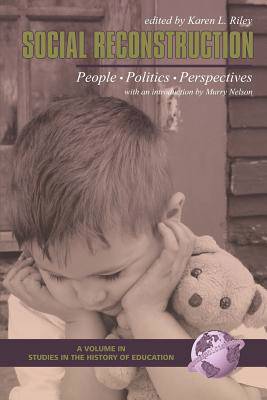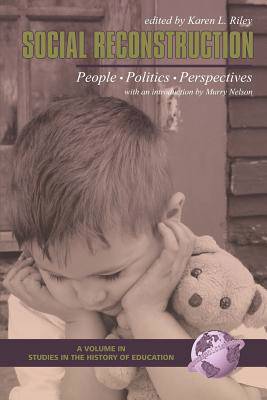
- Afhalen na 1 uur in een winkel met voorraad
- Gratis thuislevering in België vanaf € 30
- Ruim aanbod met 7 miljoen producten
- Afhalen na 1 uur in een winkel met voorraad
- Gratis thuislevering in België vanaf € 30
- Ruim aanbod met 7 miljoen producten
Zoeken
Social Reconstruction
People, Politics, Perspectives (PB)
€ 84,95
+ 169 punten
Omschrijving
Social Reconstruction as a philosophy, stream of thought or "official program" ois often synonymous with Depression-era Progressivism. But, Social Reconstruction, unlike progressivism, enjoyed political stardom. The spirit of progressivism, at least in terms of education, found a home in those enthusiasts who supported a child-centered perspective of education. Others, such as the essentialists viewed their progressive role as one that advanced the view of essential or basic education as the most sound approach to curriculum and teaching. Still others, more radical in their outlook, believed that progress should be framed with questions about social justice and equity. Proponents of social reconstruction included Harold Rugg and George Counts, although the "movement" was rich with supporters. To date, social reconstruction is only a by word in most texts that deal with the Progressive Era or progressive education, perhaps, because Rugg and Counts, the two most visible proponents, sought and received the political limelight, no matter how glaring. In any event, the depths of social reconstruction have yet to be plumbed. Hence, the first book in this series will offer a comprehensive treatment of Social Reconstruction, which include chapters that examine its proponents, political nature, and social justice programs born of and within the tumultuous context of progressive politics.
Specificaties
Betrokkenen
- Uitgeverij:
Inhoud
- Aantal bladzijden:
- 284
- Taal:
- Engels
- Reeks:
Eigenschappen
- Productcode (EAN):
- 9781593112141
- Verschijningsdatum:
- 28/03/2006
- Uitvoering:
- Paperback
- Formaat:
- Trade paperback (VS)
- Afmetingen:
- 156 mm x 234 mm
- Gewicht:
- 399 g

Alleen bij Standaard Boekhandel
+ 169 punten op je klantenkaart van Standaard Boekhandel
Beoordelingen
We publiceren alleen reviews die voldoen aan de voorwaarden voor reviews. Bekijk onze voorwaarden voor reviews.










